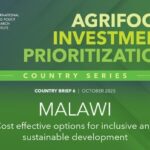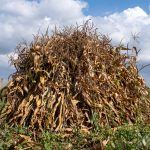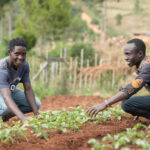Abstract: In this policy brief, we present findings of a systematic evaluation and ranking of investment options for Malawi’s agrifood system based on their cost-effectiveness in achieving multiple development outcomes, including agrifood gross domestic product (GDP) growth, agrifood job creation, poverty reduction, declining undernourishment, and lowering diet deprivation. Additionally, the study assesses their environmental footprint, […]
Asking the right questions: A stakeholder dialogue on generative AI in digital extension
Generative artificial intelligence (gen AI) is gaining traction in agriculture. Conversational agents such as chatbots and voice assistants are being explored as digital extension solutions, promising scalable, personalized advice for farmers that can supplement and support the work of human extension agents. Yet designing and deploying such AI tools presents many challenges.
From participation to power: Advancing women’s leadership in rural development
The International Day of Rural Women (October 15) highlights the essential roles that rural women play in sustaining households, managing natural resources, and contributing to rural economies. Yet even as they participate extensively in agriculture and local organizations, women’s ability to influence the policies and institutions that shape their lives often remains limited.
IFPRI Maize market report September 2025
The Monthly Maize Market Reports are developed by researchers at IFPRI Malawi, with the main goal of providing clear and accurate daily maize price data in selected markets throughout Malawi. The reports are intended as a resource for those interested in maize markets in Malawi, namely producers, traders, consumers, or other agricultural stakeholders. Highlights Retail […]
Africa’s youth and the future of food: IFPRI’s Key takeaways from AFS Forum 2025
Over 60% of Africa’s people are under 25. By 2035, more young Africans will join the workforce each year than in the rest of the world combined, underscoring the urgency of the 2025 African Food Systems Forum (AFS Forum) theme: “Africa’s Youth: Leading Collaboration, Innovation, and Implementation of Agri-Food Systems Transformation.”
- « Previous Page
- 1
- 2
- 3
- 4
- 5
- 6
- …
- 79
- Next Page »





